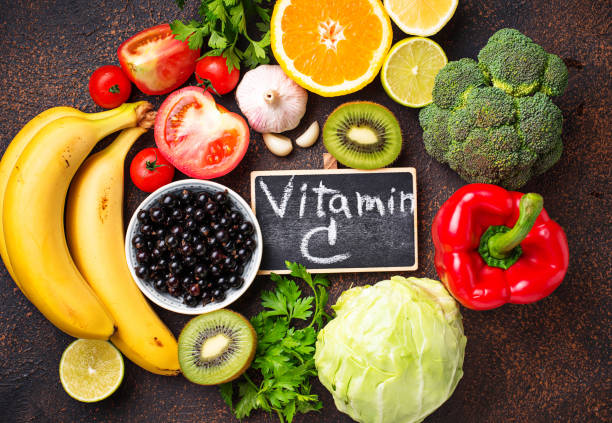-
No products in the cart.

The Do’s & Don’ts of Vitamin C

Vitamin C is a essential nutrient to sustain our general health and well-being. As our bodies are unable to create this necessary vitamin on their own, we must get it from our food sources or supplements.
Why Do We Need Vitamin C?
Before we move on to the do’s and don’ts of vitamin C, let’s cover the fundamental health benefits of this essential vitamin.
To Boost Immunity
Vitamin C acts as an antioxidant in the body. Having sufficient Vitamin C daily helps reduce oxidative stress and cell damage in the body. Thus, it strengthens your immunity against various diseases and viral infections.
For Optimal Skin, Hair & Joint Health
Vitamin C promotes the production of collagen in the body. This protein is responsible for providing structure and strength to skin, bones, and connective tissues, thus promoting healthy skin, hair, and joints. Vitamin C also protects the skin from harmful sun rays. In addition, it helps maintain healthy joints and prevent inflammatory conditions such as arthritis.
To Promote Iron Absorption
Iron is very important for our body, especially for women on menstrual cycle. It helps to maintain healthy red blood cells which carry fresh oxygen all over the body. Vitamin C promotes the absorption of iron in our bodies.
How Much Vitamin C Do We Need Daily?
For normal healthy men aged 19 and above, the RDA (recommended daily allowance) is 105 mg. On the other hand, for normal healthy adult women, it is 85 mg. However, pregnant and lactating women will require higher intake. (Source: Health Hub, Singapore) 85 mg is equivalent to around 1-2 oranges or slightly more than 1/2 (half) tablespoon of Camu-Camu Berry powder .
Whole-Food Sources of Vitamin C:
• Orange (1 big whole, 79.5mg)
• Bell peppers (1 whole, 241.6mg)
• Strawberries (1 cup, 67.5mg)
• Tomatoes (1 whole, 14.2mg)
• Broccoli (Boiled, 1 cup, 119 mg)
• Nature’s Superfoods – Organic Premium Camu-Camu Berry Powder (1 teaspoon,
158 mg)
• Nature’s Superfoods – Organic Sun-Dried White Mulberries (1/4 cup, 84mg)
Do’s And Don’ts For Vitamin C
Let’s discuss the must-know do’s and don’ts of vitamin C intake.
Do’s
Take Whole-Food Vitamin C
Vitamin C complex is best obtained from whole-food sources rather than from supplements (isolated/synthetic Vitamin C pills or ascorbic acid, for example). Whole-food sources of Vitamin C naturally contain complementary nutrients that can promote the absorption of Vitamin C in the body. In comparison, isolated/synthetic Vitamin C pills (which are mainly isolated ascorbic acid) do not have the same absorption effectiveness. Examples of good whole-food Vitamin C sources are oranges, kiwifruit, bell peppers, Camu-camu powder, etc.
Take On An Empty Stomach
Vitamin C-rich foods have the best effect on the body when taken on an empty stomach, for example, 1 hour before a meal.
If you lead a busy lifestyle and are not able to consume sufficient fruits and vegetables in a day, boost your daily Vitamin C requirement with Organic Camu-Camu Berry Powder. Just one teaspoon of the powder is more than sufficient to meet your daily Vitamin C requirement. You can mix the powder into honey water, juice, etc as a daily immunity/beauty drink!
Don’ts
Be aware of the following factors to get the best results from taking vitamin C.
Don’t Overdose
Too much of a good thing becomes a bad thing. More than 1,000 mg/day of Vitamin C is considered an overdose. For this reason, you should avoid excess intake. Otherwise, you may face the following issues:
- Digestive Problems: Too much Vitamin C can lead to digestive issues like diarrhoea, stomach cramps, nausea, etc.
- Interfere With Medications: An overdose of Vitamin C may affect the safety and efficacy of oestrogen therapy. It may be detrimental for patients with diabetes, kidney stones or kidney dysfunction.
Please Note: Always talk to your doctor first before taking any high-dose Vitamin C on a long-term basis, especially if you have any underlying medical conditions.

